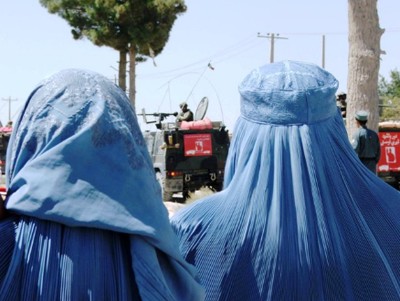Afghanistan’s hard-won post-Taliban human rights achievements are being eroded due to the persistent immunity from prosecution of powerful figures, the intensifying conflict, and the adoption of laws which undermine justice and human rights, a UN official warns.

The Shia Personal Status Law - promulgated by President Hamid Karzai in July 2009 - has been described as a law which “legitimizes discriminatory practices against women”. President Karzai has defended the law, saying it reflects the sentiments of most of the Shia minority which makes up 15-20 percent of the population.
Norah Niland, the outgoing representative of the UN Office of the High Commissioner for Human Rights (OHCHR) in Afghanistan, called on the Afghan government to repeal a controversial law which gives blanket immunity to perpetrators of mass atrocities committed over the past three decades.
“This law greenlights [criminal] impunity,” Niland told reporters in Kabul on 25 March, adding that the law inhibited effective implementation of a transitional justice plan in the country the deadline for which expired in March 2009.
The so-called National Reconciliation, General Amnesty and Stability Law, popularly known as the amnesty law, was ratified by two-thirds of the Afghan parliament in 2007 but has recently been exposed to public scrutiny.
Article 3 of the law grants unconditional immunity from prosecution to all belligerent parties and individuals involved in fighting between 1979 and 2002.
Niland said the country would not be able to shed its fractured past and achieve viable peace without bringing perpetrators of egregious human rights violations to justice.
“The past must not continue,” she said.
The Afghan government rejects the criticisms, believing that the amnesty law will help foster national reconciliation and stability.
Women’s rights
In addition, women’s rights are frequently trampled in Afghanistan.
A December 2009 OHCHR report presented at the UN Human Rights Council in March 2010 details a number of setbacks.
The Shia Personal Status Law - promulgated by President Hamid Karzai in July 2009 - has been described as a law which “legitimizes discriminatory practices against women”.
“It [the law] paves the way for further restrictions on the rights of all Afghan women, and jeopardizes hard-won gains in the context of efforts to counter violence and discrimination against Afghan women,” said the report.
President Karzai has defended the law, saying it reflects the sentiments of most of the Shia minority which makes up 15-20 percent of the population.
Intensified conflict
Meanwhile, the OHCHR, which operates under the UN Assistance Mission in Afghanistan (UNAMA) and monitors the impact of war on civilians, has warned about the increasing number of civilian casualties over the past three years.
Over 2,400 civilians lost their lives as a result of armed violence in 2009.
UNAMA recorded 385 civilian deaths in January and February 2010 - a roughly 30 percent increase on the same period last year.
It also attributed 55 percent of the total civilian deaths in the first two months of this year to anti-government elements and 39 percent to pro-government Afghan and foreign forces.



